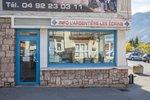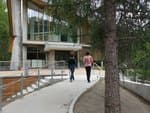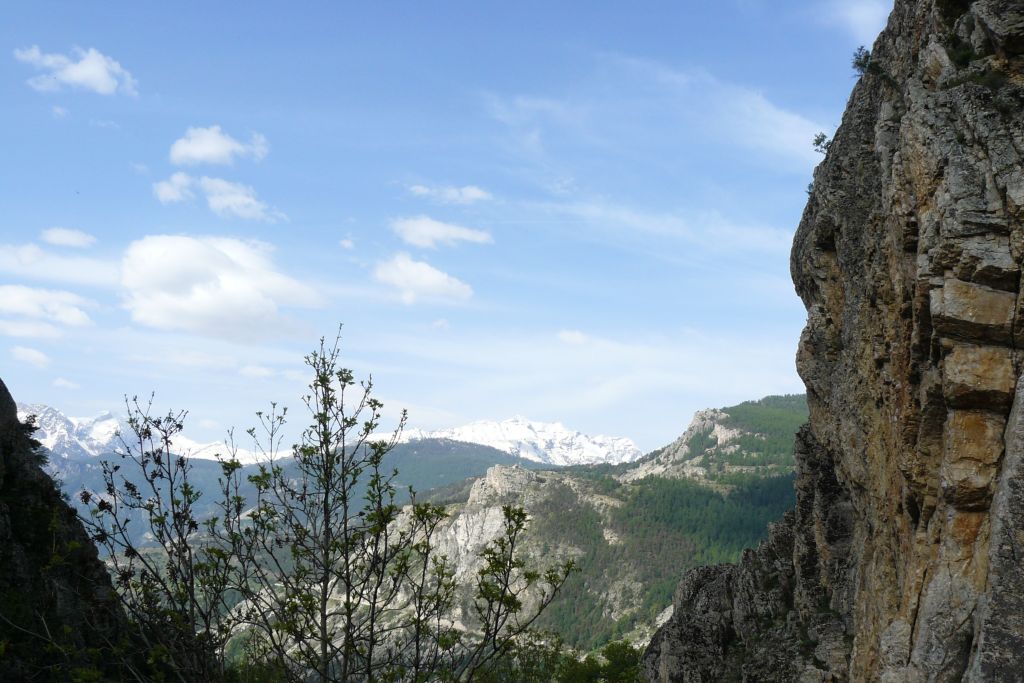
The tour of the Rocher Baron (trail route no. 4)
Listen to the soft calls of the bullfinch, watch the crickets which come in every colour, feel the undulations of the ripple marks, breathe in the scent of the conifers and enjoy watching the exploits of the climbers on the Rocher Baron. The tour of the Rocher Baron will awaken your senses!
Description
Starting from the campsite, head towards the hamlet of Le Villaret and go through it.
- After the hamlet, take the path on the left which leads to the plateau of the Rocher Baron.
- At the intersection at the Rocher Baron, fork right to start the descent through stony terrain.
- When you come to the Ressourcerie la Miraille reclamation and repurposing centre, skirt around it. At the give-way sign, head left towards the D36C. Then cross the bridge and at the roundabout head towards Le Villaret. Carry on along the D36 until you come to the hamlet of Le Villaret, then head back to the campsite following your outward route in reverse.
- Departure : Camping de l’Iscle de Prelles, Saint-Martin-de-Queyrières
- Arrival : Camping de l’Iscle de Prelles, Saint-Martin-de-Queyrières
- Towns crossed : Saint-Martin-de-Queyrières and Villar-Saint-Pancrace
Altimetric profile
Recommandations
Before setting off, it is very important to check the opening periods for this route on the website: https://stationdetrail.com/fr/stations/le-pays-des-ecrins/parcours
Share your photographs on social networks with #stationdetrailecrins
Check weather conditions before setting off.
Rescue services contact details: Secours Montagne (Mountain Rescue): +33 (0)4 92 22 22 22 or 112
Show consideration for the work of farmers, livestock keepers and owners
Close all gates behind you
Take your litter home
Do not take shortcuts across pastureland
The trail routes are also suitable for walking
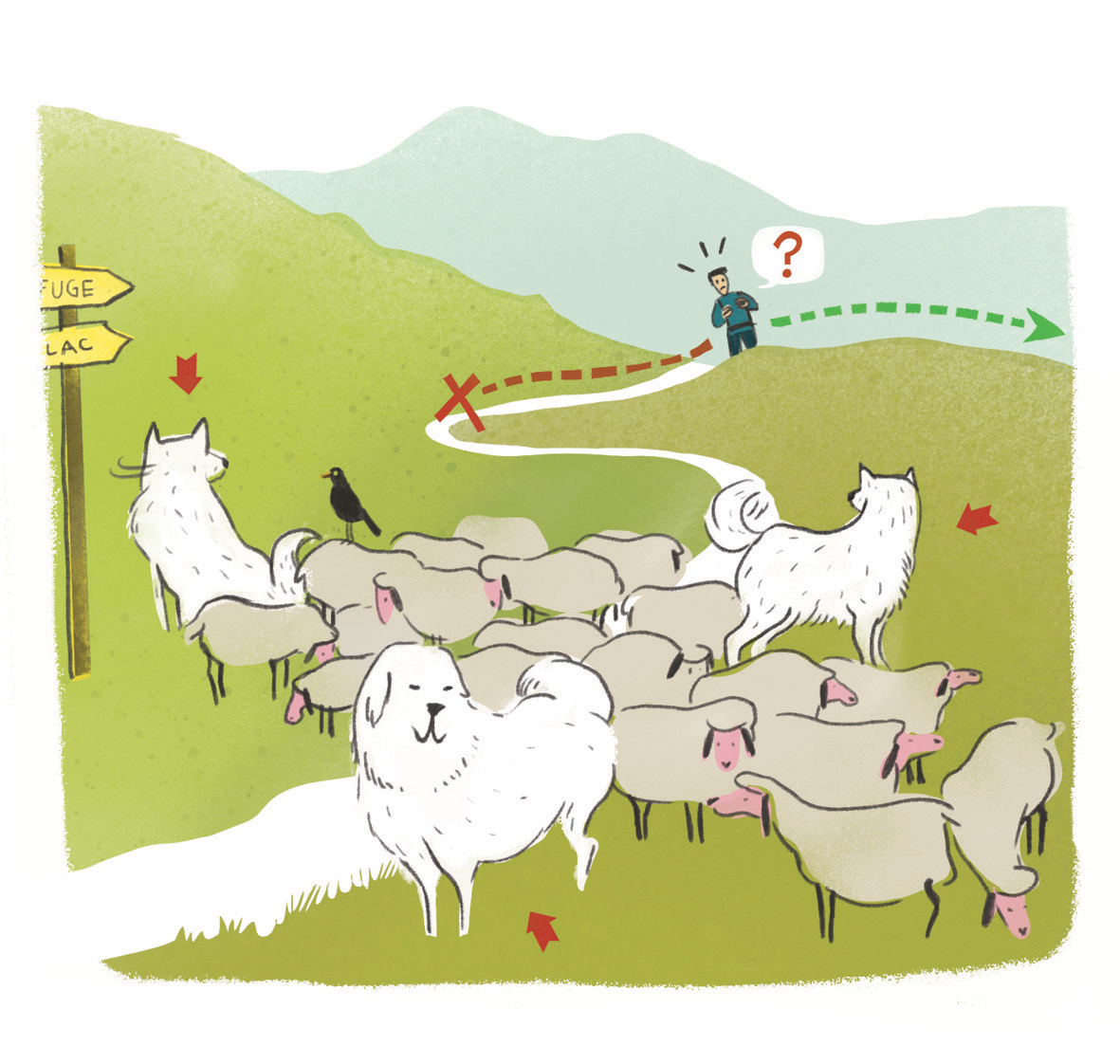 In mountain pastures, protection dogs are there to protect the herds from predators (wolves, etc.).
In mountain pastures, protection dogs are there to protect the herds from predators (wolves, etc.).
When I hike I adapt my behavior by going around the herd and pausing for the dog to identify me.
Find out more about the actions to adopt with the article "Protection dogs: a context and actions to adopt".
Tell us about your meeting by answering this survey.
Information desks
23 Avenue de la République, 05120 L'Argentière-La Bessée
Vallouise Park house
, 05290 Vallouise
Information, documentation, models, exhibitions, screenings, product sales and works of the Park. Guided tours for school, reservation required. The new Park House opened in Vallouise since June 1, and offers visitors an interactive permanent exhibition inviting to explore the area and its heritage. A temporary exhibition space will allow a renewed offer. Finally, the device is completed by an audiovisual room to organize screenings and conferences Free admission. All animations of the Park are free unless otherwise stated.
Transport
Public transport >> www.pacamobilite.fr
Consider car-sharing >> www.blablacar.fr
For more information, ask at the Tourist Information Office nearest to the trail starting point.
Access and parking
10 km from L'Argentière-La Bessée, take the N94.
4 points of interest
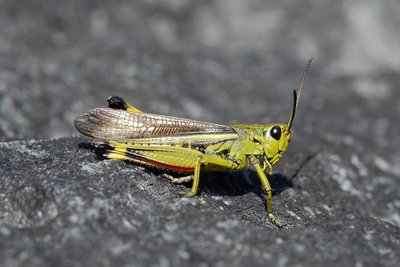
Le criquet ensanglanté - Mireille Coulon - Parc national des Écrins  Fauna
FaunaThe large marsh grasshopper
In the wet areas beside the streams lives the large marsh grasshopper. Its French name, criquet engsanglanté, translates as the "bloodied grasshopper" because the female has purple-red marks which stand out against her general green colour. Her eggs are drought-sensitive so she only lays them in damp soil. When courting the female, the male does not chirp but makes clicking sounds, which he produces by stretching his hind leg in a sudden movement.
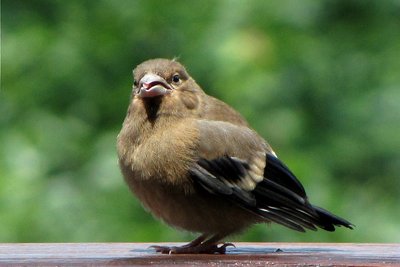
Jeune bouvreuil - Christophe Albert - Parc national des Écrins  Fauna
FaunaThe bullfinch
Gentle and melancholic calls can be heard coming from trees in the forest. They are the calls of the bullfinch, a plump and timid little passerine. The male can be identified from his pinkish red underside, while the female's is beige. Both have a black cap. They often live in small groups, staying in contact with one another through their little calls. It is a year-round resident.
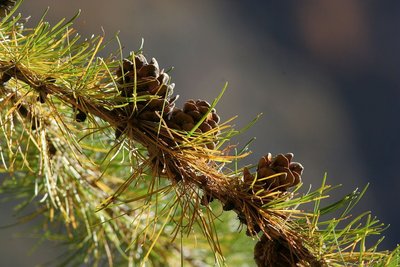
Mélèze avec cônes - Robert Chevalier - Parc national des Écrins  Flora
FloraThe larch
Golden yellow needles in autumn, purple cones in the spring... The larch offers colour interest throughout the year, and rather suits its title "the tree of light". It drops its soft deciduous needles in autumn and winter. In spring, the slender branches of this conifer are dotted with female flowers, which will develop into cones, and male flowers. The larch thrives on the north-facing slopes and lights up the mountainsides.
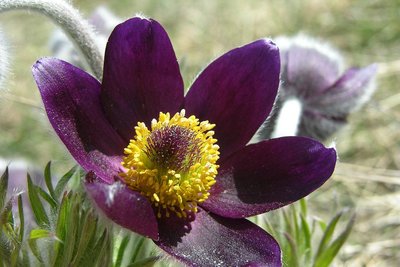
Pulsatille des montagnes - Thierry Maillet - Parc national des Écrins  Flora
FloraThe alpine anemone
The alpine anemone or the alpine pulsatilla blooms here in the spring. It is a plant with a downy covering of white hairs on the large drooping flowers which are dark purple, contrasting with the bright yellow of the numerous stamens, and with very indented leaves. In summer, its fruits with a long pappus, or tuft, form a feathery seed head atop the stem. Although it is frequently found in localised areas, it is nevertheless a rare species dependent on steppe meadows in the Durance valley.
Source

Report a problem or an error
If you have found an error on this page or if you have noticed any problems during your hike, please report them to us here:

